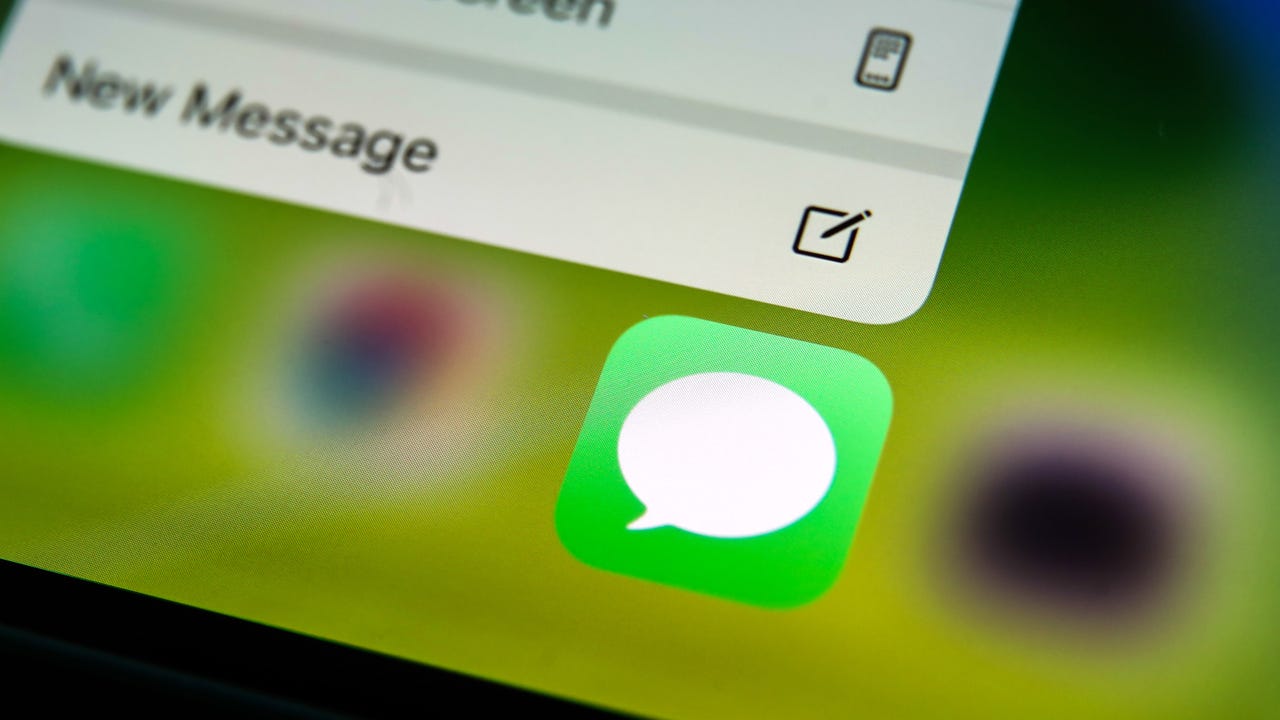Google urges EU regulators to make Apple open up iMessage


Once again, Google is pressuring Apple to open up iMessage -- and this time, it's doing so by way of a letter to European regulators. Joined by CEOs from major European telecommunications companies, an unnamed Google senior vice president signed a letter saying that Apple's iMessage should be regulated as a core platform service under the EU's new Digital Markets Act (DMA).
The DMA keeps an eye on companies providing services that are widely used and are considered vital to the digital economy. One of the DMA's purposes is to foster fair competition and prevent tech giants from abusing their market power.
Also: iPhone 15 review: I spent a month with Apple's base model and found it more 'Pro' than ever
These core platform services include social networking sites, search engines, operating systems, cloud computing, advertising, and messaging services.
The letter -- signed by tech leaders from Google, Orange, Vodafone, Telefonica, and Deutsche Telekom -- makes the case that Apple's iMessage meets the DMA criteria for core platform services, being used by at least 10,000 active users monthly in the EU and operated by a company with annual revenues above €7.5 billion.
Being considered a core platform service under the DMA would make Apple, as the provider of the iMessage service on iPhones, subject to specific obligations to ensure a fair and competitive market or face fines in the EU.
Also: iPhone users keep their phones longer than Android owners
These obligations could include opening Android users to some iMessage features currently exclusive to iOS users, making iMessage interoperable with other messaging services, and adopting Rich Communication Services (RCS).
Google and Android users have long advocated for Apple to support RCS, a cross-platform communication protocol poised to replace SMS communication.
Also: The Apple products you shouldn't buy this month: November 2023 edition
RCS offers features often found in messaging apps, like typing indicators, read receipts, high-resolution photo and video sharing, and group messaging. Because it's supported across many carriers and manufacturers, including the Android Messages app, RCS is integrated into a smartphone's native messaging app and doesn't require user interference.
Apple's iMessage supports read receipts, typing indicators, group messaging, and high-resolution photo and video sharing, but exclusively within the iOS ecosystem -- and it does not support RCS. Text messages between Android and iOS are done via SMS and do not look like iMessage.
Also: 3 reasons why I ditched my Samsung Galaxy foldable for the OnePlus Open
Notably, the iMessage text bubbles are blue in an iOS-to-iOS exchange but green in an iOS-to-Android exchange. Additionally, images and videos shared from iOS to Android and vice-versa are sent with low quality due to Apple's lack of RCS support.
RCS supports a rich messaging experience that is phone-number-based rather than Apple's OS-based experience.
Hiroshi Lockheimer, a senior vice president of Google and longtime RCS proponent, has previously urged Apple to support RCS. The Google exec isn't asking Apple to make iMessage available to Android users but rather to support a richer communication protocol between platforms.
Also: The 15 best early Black Friday 2023 Samsung deals
"If you want to reach someone and you don't know whether they use app x, y, or z, you have high confidence that sending them a text (SMS) will work. That's because it's a standard and supported by essentially all mobile devices. That's probably why Apple supported SMS to begin with," Lockheimer wrote on X, formerly Twitter, in 2022.